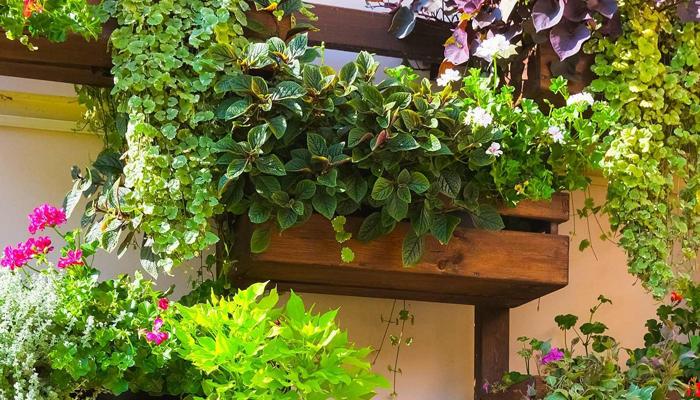Uncover the Power of Gardening: Your Path to Health and Happiness. Dig into how gardening can transform your well-being
In today's fast-paced world, finding ways to de-stress and stay healthy is becoming
increasingly important. While hitting the gym and following strict diets are popular options, many are now discovering the joys and benefits of a simpler, more grounded activity: gardening.
Gardening, whether it's a sprawling backyard garden or a small collection of potted plants on a balcony, offers a unique blend of physical activity, mental relaxation, and a connection with nature that can significantly boost your overall well-being.
Let's delve into the numerous ways gardening can contribute to a healthier and happier you.
Gardening is a full-body workout with health benefits, like improving strength and flexibility
Gardening might seem like a gentle pastime, but it's a surprisingly effective workout. From digging and planting to weeding and watering, various gardening tasks engage multiple muscle groups. These activities help improve strength, flexibility, and stamina.
Think of it as a low-impact exercise routine that gets you moving without the jarring effects of some high-intensity workouts. Moreover, spending time outdoors in the sunshine helps your body produce Vitamin D, essential for bone health and immune function.
Just remember to wear sunscreen and protective clothing to shield yourself from harmful UV rays. So, ditch the gym sometimes and get your hands dirty – your body will thank you for it!
Gardening boosts mental health by reducing stress and increasing happiness
In addition to physical benefits, gardening offers a wealth of mental health advantages. The simple act of nurturing plants can have a profound calming effect on the mind.
The repetitive motions involved in gardening, such as weeding or watering, can be meditative, allowing you to quiet your thoughts and reduce stress levels.
Studies have shown that gardening can lower cortisol, the stress hormone, and increase levels of serotonin and dopamine, neurotransmitters associated with happiness and well-being.
Creating a green space around your home can transform it into a personal sanctuary, a place to escape the pressures of daily life and reconnect with nature. Even a small balcony garden can provide a sense of peace and tranquility amidst the hustle and bustle of urban living.
Gardening benefits all ages and abilities, promotes connection and learning
One of the best things about gardening is that it's accessible to people of all ages and abilities. Children can learn about nature, responsibility, and patience by helping with simple tasks like planting seeds or watering plants.
For seniors, gardening can provide a gentle form of exercise that helps maintain mobility and cognitive function. Adaptive gardening tools and techniques are available to assist individuals with physical limitations, ensuring that everyone can enjoy the benefits of this rewarding activity.
Community gardens are also a fantastic way to connect with others, share gardening knowledge, and build a sense of belonging. Whether you're a seasoned gardener or a complete beginner, there's always something new to learn and discover in the world of plants.
Gardening enhances well-being through sensory engagement and connection to nature
Gardening is a multi-sensory experience that engages your sight, smell, touch, and even taste. The vibrant colors of flowers, the soothing sounds of rustling leaves, and the earthy aroma of soil can all contribute to a sense of well-being.
Many gardeners find joy in growing their own herbs and vegetables, adding fresh, flavorful ingredients to their meals. The satisfaction of harvesting your own produce and sharing it with family and friends is an invaluable experience.
Gardening also encourages you to slow down and appreciate the simple beauty of nature, fostering a sense of gratitude and connection to the natural world around you.
Gardening is a constant learning journey filled with exploration and growth opportunities
Gardening is a continuous learning process. From understanding soil composition and plant requirements to mastering propagation techniques and pest control methods, there's always something new to discover.
Gardening can spark your curiosity and encourage you to explore the fascinating world of botany and horticulture. There are numerous resources available to help you expand your gardening knowledge, including books, online tutorials, and local gardening clubs.
Sharing your gardening experiences with others can also be a great way to learn and grow as a gardener. Remember, every mistake is a learning opportunity, and every successful harvest is a cause for celebration.
Gardening benefits personal health and the environment
Beyond the personal health benefits, gardening also contributes to a healthier environment. By growing plants, you're helping to absorb carbon dioxide from the atmosphere and release oxygen, improving air quality.
Gardening can also help to reduce soil erosion and conserve water, especially when using sustainable gardening practices such as composting and mulching. Creating a garden can provide habitats for pollinators like bees and butterflies, which are essential for a healthy ecosystem.
Even a small garden can make a positive impact on the environment. So, embrace your green thumb and contribute to a more sustainable future, one plant at a time.














